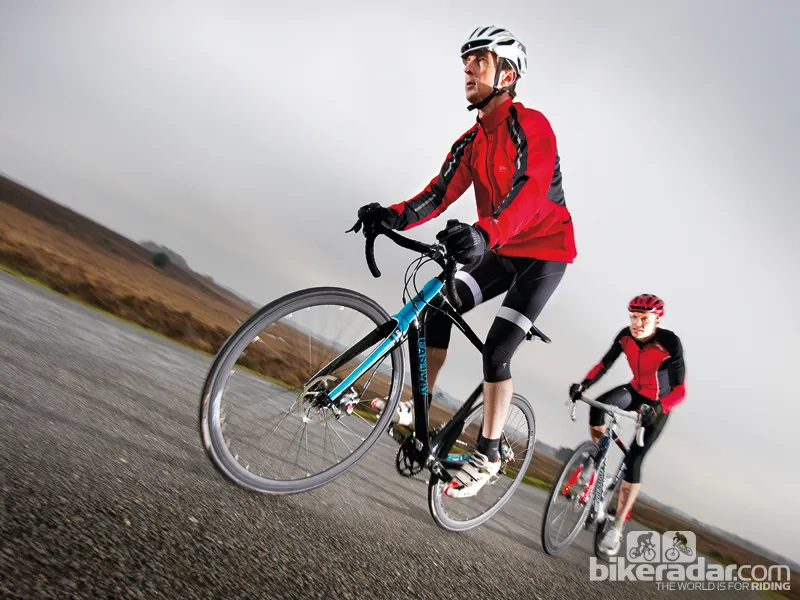New bikes are commonplace, whole new brands less so. Eastway are a new UK-based brand specialising in “urban sports” bikes with an emphasis on everyday usability and durability.
- Highs: Fast and futureproof chassis with thoughtful component spec
- Lows: Uncompromising ride quality, and SRAM shifting not to all tastes
- Buy if: You want a unique recreational performance bike that’s ready for the future
The RD1.0 shows that it's not shy of innovation, though – this is one of a still-very-small number of performance-oriented road bikes with disc brakes. Many manufacturers are offering discs on more utilitarian bikes to take advantage of capacious tyre clearances, but discs combined with 410mm chainstays and tyre-hugging fork crowns are more rare.
The Eastway's carbon fibre frame is pleasingly bereft of gimmicky tube shaping in profile, with all the points being connected by straight lines. There's plenty going on in cross-section, though, with roughly triangular top and down tubes and a heavily flared seat tube giving lots of volume around the bottom bracket. The chainstays are deep, with slender, flattened seatstays aiming to soften the ride a little. A post-style brake mount on the seatstays is braced across to the chainstay.
Most of the disc brake bikes we've seen have moved to the MTB-standard 135mm rear dropout spacing, but the Eastway sticks with a conventional 130mm back end. With short 410mm chainstays, the narrower spacing removes any possible issues with the chain catching on the big ring when you use the smaller sprockets and inner ring. A compact SRAM Force carbon chainset also increases clearance.
As a performance-oriented, carbon fibre, disc-equipped road bike, the RD1.0 is already somewhat ahead of the curve, but Eastway have made sure it's ready for the next step. The rear brake cable runs in a continuous full-length housing from lever to caliper, with the housing clipped into cradles that will take hydraulic hose just as easily.
The frame is also poised for a clean upgrade to electronic shifting – the gear cables are already internally routed, with removable cover plates to accommodate Di2 plugs. There's also a cable port on the seat tube near the front mech and an extra boss on the down tube to mount a battery.

Out on the road, the RD1.0's enthusiasm for speed is clear. It offers a stiff pedalling platform and the handling is direct without being nervous – it's confident on ropy surfaces and happy in traffic, as befits its design intent.
At 7.9kg (17.4lb) for the full bike, the Eastway is a competitive weight for the price, although the 32-hole, deep-section aluminium rims don't spin up with quite the alacrity of lighter sections. Eastway have deliberately built the wheels for durability, though, and they need to be a little overbuilt to deal with the discs.
The feel of the Avid BB7 Road disc brakes through the Force levers is firm, but there's plenty of power there. It's easy to modulate the brakes, and the stiff frame and fork mean no distracting twist or flutter under braking. We're glad to see forward-angled dropouts on the fork too, reducing the possibility of the axle moving in the dropouts due to braking forces.
With the high-volume frame, stiff fork, 32-spoke wheels with deep rims, a thinly padded saddle and a fat seatpost, it's not that surprising that the RD1.0 isn't the most comfortable bike out there.
It's not punishingly harsh, but is better suited to shorter, fast rides rather than massive mileage. If you need a bit more comfort then 25mm tyres, a different saddle and maybe a shimmed 27.2mm seatpost would all do the job.
